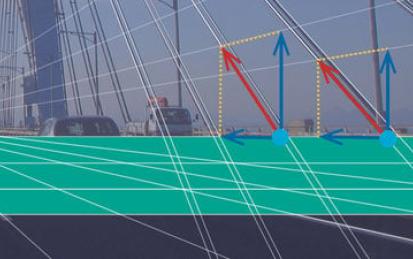

Our Courses

Expressway to Data Science: Essential Math
Data Science is growing rapidly, creating opportunities for careers across a variety of fields. This specialization is designed for learners embarking on careers in Data Science. Learners are provided with a concise overview of the foundational mathematics that are critical in Data Science. Topics include algebra, calculus, linear algebra, and some pertinent numerical analysis.
-
Course by

-
 Self Paced
Self Paced
-
 English
English

AI Workflow: Machine Learning, Visual Recognition and NLP
This is the fourth course in the IBM AI Enterprise Workflow Certification specialization. You are STRONGLY encouraged to complete these courses in order as they are not individual independent courses, but part of a workflow where each course builds on the previous ones. Course 4 covers the next stage of the workflow, setting up models and their associated data pipelines for a hypothetical streaming media company. The first topic covers the complex topic of evaluation metrics, where you will learn best practices for a number of different metrics including regressi
-
Course by

-
 Self Paced
Self Paced
-
 14 hours
14 hours
-
 English
English

Prediction and Control with Function Approximation
In this course, you will learn how to solve problems with large, high-dimensional, and potentially infinite state spaces. You will see that estimating value functions can be cast as a supervised learning problem---function approximation---allowing you to build agents that carefully balance generalization and discrimination in order to maximize reward. We will begin this journey by investigating how our policy evaluation or prediction methods like Monte Carlo and TD can be extended to the function approximation setting.
-
Course by

-
 22 hours
22 hours
-
 English
English

Computer Vision Basics
By the end of this course, learners will understand what computer vision is, as well as its mission of making computers see and interpret the world as humans do, by learning core concepts of the field and receiving an introduction to human vision capabilities. They are equipped to identify some key application areas of computer vision and understand the digital imaging process. The course covers crucial elements that enable computer vision: digital signal processing, neuroscience and artificial intelligence.
-
Course by

-
 13 hours
13 hours
-
 English
English

Advanced Statistics for Data Science
Fundamental concepts in probability, statistics and linear models are primary building blocks for data science work. Learners aspiring to become biostatisticians and data scientists will benefit from the foundational knowledge being offered in this specialization. It will enable the learner to understand the behind-the-scenes mechanism of key modeling tools in data science, like least squares and linear regression. This specialization starts with Mathematical Statistics bootcamps, specifically concepts and methods used in biostatistics applications.
-
Course by

-
 Self Paced
Self Paced
-
 English
English

Mathematics for Machine Learning
For a lot of higher level courses in Machine Learning and Data Science, you find you need to freshen up on the basics in mathematics - stuff you may have studied before in school or university, but which was taught in another context, or not very intuitively, such that you struggle to relate it to how it’s used in Computer Science.
-
Course by

-
 Self Paced
Self Paced
-
 English
English

Self-Driving Cars
Be at the forefront of the autonomous driving industry. With market researchers predicting a $42-billion market and more than 20 million self-driving cars on the road by 2025, the next big job boom is right around the corner. This Specialization gives you a comprehensive understanding of state-of-the-art engineering practices used in the self-driving car industry.
-
Course by

-
 Self Paced
Self Paced
-
 English
English

Linear Algebra Basics
Machine learning and data science are the most popular topics of research nowadays. They are applied in all the areas of engineering and sciences. Various machine learning tools provide a data-driven solution to various real-life problems. Basic knowledge of linear algebra is necessary to develop new algorithms for machine learning and data science. In this course, you will learn about the mathematical concepts related to linear algebra, which include vector spaces, subspaces, linear span, basis, and dimension.
-
Course by

-
 21 hours
21 hours
-
 English
English

Introduction to Machine Learning: Supervised Learning
In this course, you’ll be learning various supervised ML algorithms and prediction tasks applied to different data. You’ll learn when to use which model and why, and how to improve the model performances. We will cover models such as linear and logistic regression, KNN, Decision trees and ensembling methods such as Random Forest and Boosting, kernel methods such as SVM. Prior coding or scripting knowledge is required. We will be utilizing Python extensively throughout the course.
-
Course by

-
 Self Paced
Self Paced
-
 40 hours
40 hours
-
 English
English
Foundations of Quantum Mechanics
This course can also be taken for academic credit as ECEA 5610, part of CU Boulder’s Master of Science in Electrical Engineering degree. This course covers the fundamental concepts and topics of quantum mechanics which include basic concepts, 1D potential problems, time evolution of quantum states, and essential linear algebra. It provides undergraduate level foundational knowledge and build on them more advanced topics. At the end of this course learners will be able to: 1.
-
Course by

-
 Self Paced
Self Paced
-
 27 hours
27 hours
-
 English
English

Fundamental Linear Algebra Concepts with Python
In this course, you'll be introduced to finding inverses and matrix algebra using Python. You will also practice using row reduction to solve linear equations as well as practice how to define linear transformations. Let's get started!
-
Course by

-
 Self Paced
Self Paced
-
 11 hours
11 hours
-
 English
English

Digital Signal Processing 1: Basic Concepts and Algorithms
Digital Signal Processing is the branch of engineering that, in the space of just a few decades, has enabled unprecedented levels of interpersonal communication and of on-demand entertainment. By reworking the principles of electronics, telecommunication and computer science into a unifying paradigm, DSP is a the heart of the digital revolution that brought us CDs, DVDs, MP3 players, mobile phones and countless other devices. In this series of four courses, you will learn the fundamentals of Digital Signal Processing from the ground up.
-
Course by

-
 Self Paced
Self Paced
-
 29 hours
29 hours
-
 English
English

Guided Tour of Machine Learning in Finance
This course aims at providing an introductory and broad overview of the field of ML with the focus on applications on Finance. Supervised Machine Learning methods are used in the capstone project to predict bank closures.
-
Course by

-
 Self Paced
Self Paced
-
 24 hours
24 hours
-
 English
English

Linear Algebra - Foundations to Frontiers
Learn the mathematics behind linear algebra and link it to matrix software development.
-
Course by

-
 Self Paced
Self Paced
-
 English
English

Math for AI beginner part 1 Linear Algebra
'Learn concept of AI such as machine learning, deep-learning, support vector machine which is related to linear algebra - Learn how to use linear algebra for AI algorithm. - After completing this course, you are able to understand AI algorithm and basics of linear algebra for AI applications.
-
Course by

-
 Self Paced
Self Paced
-
 7 hours
7 hours
-
 English
English

Specialized Models: Time Series and Survival Analysis
This course introduces you to additional topics in Machine Learning that complement essential tasks, including forecasting and analyzing censored data. You will learn how to find analyze data with a time component and censored data that needs outcome inference. You will learn a few techniques for Time Series Analysis and Survival Analysis.
-
Course by

-
 Self Paced
Self Paced
-
 11 hours
11 hours
-
 English
English

Introduction to Linear Algebra and Python
This course is the first of a series that is designed for beginners who want to learn how to apply basic data science concepts to real-world problems. You might be a student who is considering pursuing a career in data science and wanting to learn more, or you might be a business professional who wants to apply some data science principles to your work. Or, you might simply be a curious, lifelong learner intrigued by the powerful tools that data science and math provides. Regardless of your motivation, we’ll provide you with the support and information you need to get started.
-
Course by

-
 Self Paced
Self Paced
-
 12 hours
12 hours
-
 English
English

Unsupervised Machine Learning
This course introduces you to one of the main types of Machine Learning: Unsupervised Learning. You will learn how to find insights from data sets that do not have a target or labeled variable. You will learn several clustering and dimension reduction algorithms for unsupervised learning as well as how to select the algorithm that best suits your data.
-
Course by

-
 Self Paced
Self Paced
-
 23 hours
23 hours
-
 English
English

Introduction to Deep Learning
Deep Learning is the go-to technique for many applications, from natural language processing to biomedical. Deep learning can handle many different types of data such as images, texts, voice/sound, graphs and so on. This course will cover the basics of DL including how to build and train multilayer perceptron, convolutional neural networks (CNNs), recurrent neural networks (RNNs), autoencoders (AE) and generative adversarial networks (GANs).
-
Course by

-
 Self Paced
Self Paced
-
 60 hours
60 hours
-
 English
English

Capstone: Data Science Problem in Linear Algebra Framework
In this course, you'll review the specifics of the Capstone project. In addition, you will create and run your regression model and share your results with your peers. Let's get started!
-
Course by

-
 Self Paced
Self Paced
-
 9 hours
9 hours
-
 English
English

Deep Learning and Reinforcement Learning
This course introduces you to two of the most sought-after disciplines in Machine Learning: Deep Learning and Reinforcement Learning. Deep Learning is a subset of Machine Learning that has applications in both Supervised and Unsupervised Learning, and is frequently used to power most of the AI applications that we use on a daily basis. First you will learn about the theory behind Neural Networks, which are the basis of Deep Learning, as well as several modern architectures of Deep Learning.
-
Course by

-
 32 hours
32 hours
-
 English
English

AI Workflow: Enterprise Model Deployment
This is the fifth course in the IBM AI Enterprise Workflow Certification specialization. You are STRONGLY encouraged to complete these courses in order as they are not individual independent courses, but part of a workflow where each course builds on the previous ones. This course introduces you to an area that few data scientists are able to experience: Deploying models for use in large enterprises. Apache Spark is a very commonly used framework for running machine learning models. Best practices for using Spark will be covered in this course. Best practices for
-
Course by

-
 Self Paced
Self Paced
-
 9 hours
9 hours
-
 English
English

Doğrusal Cebir I: Uzaylar ve İşlemciler / Linear Algebra I: Spaces and Operators
Bu ders doğrusal cebir ikili dizinin birincisidir. Doğrusal uzaylar kavramı, doğrusal işlemciler, matris gösterimleri ve denklem sistemlerinin hesaplanabilmesi için temel araçlar vb. konuları içermektedir.
-
Course by

-
 Self Paced
Self Paced
-
 Turkish
Turkish

Linear Algebra II: Matrices and Linear Transformations
This course provides an overview of bachelor-level linear algebra. You will review all the concepts and practice and refresh the skills related to matrices and linear transformations.
-
Course by

-
 Self Paced
Self Paced
-
 21
21
-
 English
English

Linear Algebra I: Vectors and Linear Equations
This course provides an overview of bachelor-level linear algebra. You will review all the concepts and practice and refresh the skills related to vectors and linear equations.
-
Course by

-
 Self Paced
Self Paced
-
 27
27
-
 English
English



